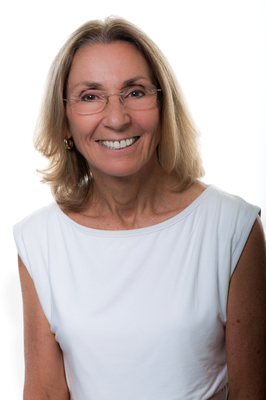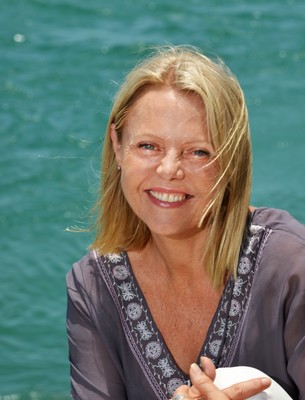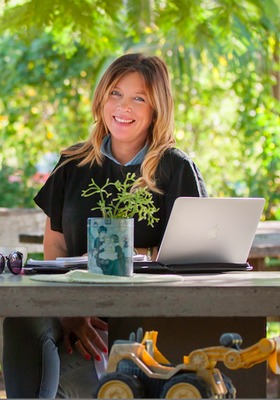International Women’s Day is this coming Wednesday 8 March and this year the focus is on being bold to make change. The day hopes to encourage everyone to help forge a better working world and a more gender inclusive world. In honour of the worldwide celebration of women, Noosa Today sat down with some of Noosa’s leading community members and asked them about their experiences in the workplace.
Councillor Ingrid Jackson
Noosa’s only female councillor, Ingrid Jackson is one of only 30 per cent of female councillors throughout Queensland and shares her experiences in various workplaces and what work is left to do in the fight for equality.
Have you experienced inequality in the workplace due to your gender?
I have always been very focused on achieving goals, so I have not observed any unequal treatment. But I do know that many women find themselves in such situations and I believe there’s still a lot of work to do in this respect – especially when it comes to senior roles and board appointments in many of Australia’s major companies.
Have you ever felt disadvantaged because you are female?
I always get on well with colleagues and have never felt personally discriminated against. But when I had small children, I had to work just 9am to 5pm (not the longer hours expected in a highly competitive corporate work environment), and this meant I missed out on a lot of workplace-based career-building networking.
In your opinion, what can be done to create better equality for men and women in the work force?
Inequality in the workplace is not just direct personal discrimination. It is often entrenched in the culture and rules of the organisation. I spent a couple of years as Equal Employment Opportunity Co-ordinator in the NSW Ministry of Education where I worked to change the system and raise awareness. The key areas that need attention to create greater equality are fair recruitment and selection processes, flexible work hours and flexible leave conditions, learning and training opportunities, promotion on merit, and raising men’s (and women’s) awareness of inadvertent discrimination. Other must do’s are helping talented and skilled women to build their self-confidence, manage their careers, have access to grievance procedures and address sexual harassment.
What advice would you offer young women wanting to enter business or management?
Be professional and excellent at what you do. Reach out for learning and training opportunities. Go the extra yard. If you think you might be being treated unequally, ask questions of your boss and be gently assertive. But don’t sweat the small stuff. And look out for the women you work with and encourage their career development.
I should add here that if women in the Noosa Shire want to consider becoming a councillor, everyone is welcome to attend council meetings. If you let me know you’re coming, I am happy to meet afterwards to answer questions and talk about what being a councillor involves. I am also available to speak to community groups and school groups about the role of councillors.
Sandy Bolton
Former councillor Sandy Bolton served on the first Noosa Council since de-amalgamation and after challenging Mayor Tony Wellington for the top job, Sandy is now busy with a long list of community groups and boards. Sandy is currently studying, is a director on local boards and is passionate about resolving social and economic issues through integrated models and connectivity.
Have you experienced inequality in the workplace due to your gender?
Inequality yes, but not from being female. Coming from an era where women had only been recently allowed into public bars, managing hotels as an 18-year-old in the western suburbs of Sydney in the ’80s saw some interesting responses from fellow managers and AHA members and patrons! However, I was fortunate to work with a private company that was only interested in outcomes, not which gender delivered the outcomes. The greatest shock was when I came from Sydney via management on remote cattle properties in the NT and Queensland to Noosa 25 years ago. It was impossible initially to get your foot in the management door which I had never experienced. I feel that was not specifically gender related … more part of the culture and ‘system’ which still exists in some forms from traditionalism and territory-based thinking.
Have you ever felt disadvantaged because you are female?
Over the years I have held positions that were traditionally male and the difficulty was not so much being female, it was later on the responsibilities as a sole parent which a male sole parent may have also encountered. Many positions could not accommodate what was seen as a disadvantage, so employment choice was narrow, and required creativity in negotiating hours and conditions to ensure that I could juggle.
In contesting the mayoralty, it was interesting that some women felt this was a male role, which indicates that even though women across the world have proven themselves as more than credentialed for leadership positions, there remains a culture that labels and segregates women into “appropriate” roles. This is phasing out rapidly as the realisation the strategies employed under a paternal and capitalistic system has not delivered the outcomes needed by people at home and across the globe.
In your opinion, what can be done to create better equality for men and women in the work force?
This will happen when inequality and “labelling” is understood for what it is – a barrier and divider to achieving. Across all sectors, issues, and debate, inequality is spoken about but not understood in its entirety, which is about segregation or preference based on difference, pre-conceived ideas, lack of knowledge and fear. Simple improvements could include removing the form fields requiring gender, age and religion as part of applications, salaries set instead of negotiated until our education system includes these skillsets, assisting new concepts such as “Bubdesks” and a promotion of work/life balance as an organisational and cultural norm. Inequality is a form of “bullying” and is destructive to individuals and society as a whole. Knowing this, we support bullying in multiple forms by allowing it to continue, which is very frustrating. Until there is a better recognition and understanding of all elements of inequality, we will not achieve the social, economic and environmental outcomes needed for a sustainable future.
What advice would you offer young women wanting to enter business or management?
Girls, and boys, that one is easy – educate, negotiate, collaborate, innovate! Get on with the job, individually and collectively, and when in doubt, just ask. Grab a mentor, join the many networks online and otherwise. Be confident in your growing knowledge and your aims, and combine your passion and purpose to delivering positive outcomes for yourself and others.
Youngsters, you are our future. Do not focus on what is real or perceived barriers – focus on the desired outcomes and keep that in focus. There are no failures, only experiences, and that is how you gain knowledge very quickly. Go forth without fear, you will be successful and achieve, in ways you may not even imagine, for all of us.
Aimee Sherriff
Aimee Sherriff is a mother-of-three, interior designer and founder of the Powerhouse Co-op, a business hub for working parents.
Have you experienced inequality in the workplace due to your gender?
Not before motherhood however defiantly after motherhood. In a job interview I was once asked if I was planning on having more children. That’s a hard question to answer as I already had a one-year-old so we were likely to add to our family however I did feel as though an applicant without children or even grown children would have been more preferable from the employer’s perspective.
Have you ever felt disadvantaged because you are female?
I’ve not personally felt disadvantaged for being female as I believe we can do whatever it is we set our mind to. However I’m aware that it exists, that woman are very good at self-sabotage and self-doubt and giving in to the feelings of inadequacy. To combat this we must rise to support fellow woman and help them to believe in themselves. We are good enough.
In your opinion, what can be done to create better equality for men and women in the work force?
I’d love to see more onsite child care in companies, both big and small. I as a mother don’t want to be separated from my child at such a young age and leave them in the hands of others, yet as a woman I need to have my creative and business desires met also.
What advice would you offer young women wanting to enter business or management?
Remember that when starting out 80 per cent is mindset and the other 20 per cent is business. If you have a great mindset you can achieve anything, however it’s an ongoing practice, kind of like religion. You have to constantly work at your mindset, and often resetting it from negative self-talk and self-doubt. Don’t be afraid to ask for advice and be vulnerable however remain strong in your vision and desires and don’t let friends and family knock you off your perch.











